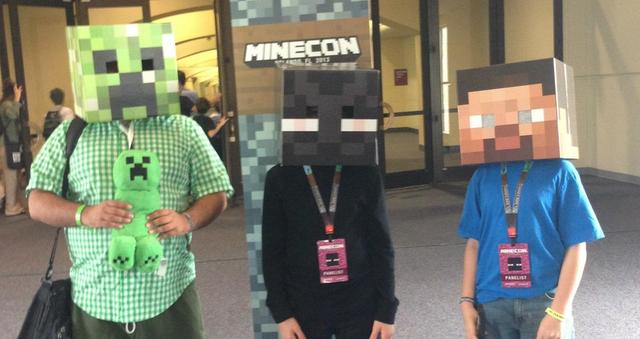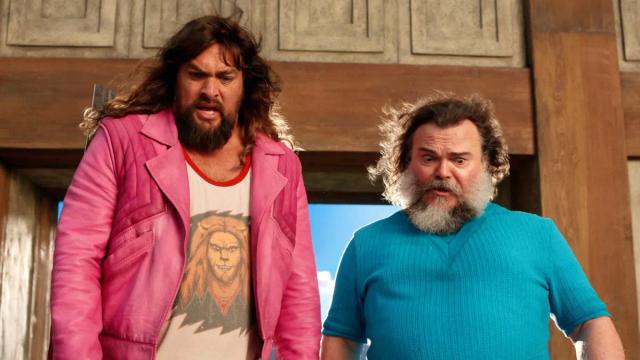If you click on a link and make a purchase we may receive a small commission. Read our editorial policy.
It’s time to make Futurama’s Church of Star Trek a reality
“And Scotty beamed them to the Klingon ship, where they would be no tribble at all.”

Popverse's top stories of the day
- Marvel's Kevin Feige talked to John Boyega about who he'd play in the MCU, but "there ain't no room for me," says the Star Wars star
- MEMBERS ONLY: Watch the Lord of the Rings movie reunion panel with Elijah Wood, Sean Astin, Dominic Monaghan, Billy Boyd, John Rhys-Davies, and Andy Serkis from Chicago's C2E2 2025
- Sorry, webheads: Tom Hardy says we weren't as close to that Spidey/Venom movie as was reported
In the now-classic Futurama season 4 episode 'Where No Fan Has Gone Before,' Trekkie Philip J. Fry discovers just how important Star Trek becomes to humanity during the 23rd century. As revealed in court martial testimony delivered by Trek legends George Takei and Nichelle Nichols, by the 2300s, Trek fandom has evolved into “a full-blown religion.” Ensuing gags include a congregation at the Church of Trek responding ritualistically to a preacher retelling the events of 'The Trouble with Tribbles' with a reverent “All power to the engines.” And the influence the religion ultimately comes to hold is symbolized by Germany being renamed “Nazi Planet Episode Land.”

Obviously, Trek’s evolution from fandom to relgion is played for laughs in 'Where No Fan Has Gone Before.' But as the grim reality of the mid-2020s moves towards us like the Enterprise D’s saucer section hurling towards Veridian 3, it seems increasingly obvious that the real joke is on us. Unironically, it’s time to make Futurama’s Church of Trek a reality.
The Jedi Are Going to Feel This One
A legitimate religion founded on a pop culture phenomenon? It’s not as unprescendented as you might think. One example is the legally recognized religion The Church of the Jedi Order (U.S. Tax Exemption DLN 26053678005195).
Followers of Jediism tallied around 5,000 in 2020. And the Church of the Jedi Order isn’t the only religion based on the teachings of the Jedi. Other demoninations include Force Academy, the Jedi Conclave and the Jedi Federation. If Star Wars fandom can make the jump from multimedia franchise to religion, why can’t Trekkies?
“We owe a great deal to cosplayers and superfans,” Roselyn Johnson, Senior Knight for the Temple of the Jedi Order, told Chloe Maveal in 2020. While Johnson doesn’t identify as a superfan, she continued that “the dedication they have to the story, the characters, the ideas, that is a good first step.” If you’ve even been to any convention, much less a Franchise-focused con like Destination Trek or the 56 Year Mission, it’s easy to see that Trekkies are just as devoted as Star Wars fans.
New Eden
Buy why should Star Trek be a religion? The Church of the Jedi Order follows 16 tenants based on the teachings of the onscreen Jedi. Star Trek possesses an analogous inspirational in-text relgion thanks to the beliefs of the Vulcans.

However, expanding the aperture a little wider, the Franchise’s central philosophy of total and radical inclusion is astoundingly relevant to the current social, poliitical and relgious climates in Western culture. This unapologic mission is evident in the human diversity presented onscreen across the Franchise. It can be succinctly sumarized by the Vulcan IDIC: “Infinite Diversity in Infinite Combinations.”
Franchise progenitor Gene Roddenberry, the Great Bird of the Galaxy, had lofty goals for the series. In a 1976 letter to George L. Thurston, III excerpted in Roddenberry’s biography Star Trek: Creator, Roddenberry wrote that he and his wife Majel Barrett Roddenberry “both believed in the brotherhood of all life forms, human and otherwise.” He continued that “the above thinking found its way into Star Trek in the philosophy of tolerance and respect for life which I tried to include in the episode.” Roddenberry included “a Xerox of an article on the ‘Vulcan religion’ which I wrote about during the series and which includes many aspects of our above described beliefs.”

Furthermore, the Franchise has always inspired devotion that might reasonably be described as 'religious.' In his memoir I Am Spock, Leonard Nimoy shares an anecdote about meeting a fan who visited the set of Star Trek: The Original Series. This fan believed Nimoy “had been chosen, in a metaphysical sese, to house the alien entity called Spock.” She continued that Spock had been sent to prepare humanity for first contact with extraterrestrials. Nimoy continues that he “recieved numerous letters along the same vein back in the sixities.”
It isn't just 'Spock Classic' who inspires this degree of devotion, either. Ethan Peck, who plays Spock on Star Trek: Strange New Worlds, has shared experiences of fan devotion, too: "When I’m meeting fans, sometimes they’re coming to be confirmed, like I’m kind of a priest," Peck told Variety. Clearly, Star Trek true believers are not, and never have been, alone.
Ad Astra Per Aspera
But could Star Trek legally become a religion? Given that Jediism has been legally recognized, its hard to imagine Trekism wouldn’t clear the same hurdles. Digging a little deeper only corroborates this expectation.
In United States vs. Seeger, it was determined that a religion is a belief which is “sincere and meaningful [and] occupies a place in the life of its possessor parallel to that filled by the orthodox belief in God of one who clearly qualifies for the exemption.” On its face, the passion many Trekkies possess could clear this hurdle. And the literal validity of the Star Trek text is irrelevant. In United States vs. Ballard, Justice William Douglas wrote, “Religious expereinces which are as real as life to some may be incomprehensible to others. Yet the fact that they may be beyond the ken of mortals does not mean that they can be made suspect before the law.”

And as far as 'the sacred texts' themselves go, it’s easy to see how the Franchise affords sufficient foundation for a belief system. Many episodes are comparable to parables, ending with underlined morals. Federation ideals are frequently espoused at length, with certain episodes putting central tenants to the test (i.e., the Prime Directive in Star Trek: The Next Generation’s “Symbiosis”). Questions like the origin of life are openly explored (see: TNG’s “The Chase,” Star Trek: Discovery season 5). Concepts like a higher intelligence, the afterlife, the ascension of religious figures and faith in a materialistic world are explored across the Franchise (and especially in Star Trek: Deep Space Nine). And thanks to Strange New Worlds’ “Subspace Rhapsody,” we even have a pretty solid start for a hymnal.
The Church of Trek
As Fry aruges: “The world needs Star Trek to give people hope for future.” While the line is undercut by Turanga Leela pointing out that TOS is set 800 years in their past, the joke works because there’s a grain of truth. Star Trek does inspire existential hope and the possibility of a utopian society, on a planetary scale and beyond. If this is not comparable to many beliefs considered legitimate by the mainstream, than what could possibly be?

Sincerely: now is the time to make the Church of Trek a reality. And as the story of St. Bjo teaches us, when Trekkies connect, there is nothing they can’t accomplish. Live long and prosper, and may the Cosmic Koala smile on us all.
Continue to boldly go with Popverse by clicking here to discover which Star Trek series is considered most popular by our readers (it's probably not the one you think)!
Follow Popverse for upcoming event coverage and news
Find out how we conduct our review by reading our review policy
Let Popverse be your tour guide through the wilderness of pop culture
Sign in and let us help you find your new favorite thing.
















Comments
Want to join the discussion? Please activate your account first.
Visit Reedpop ID if you need to resend the confirmation email.